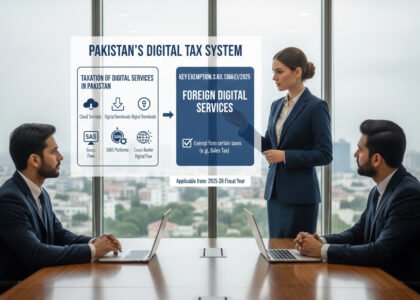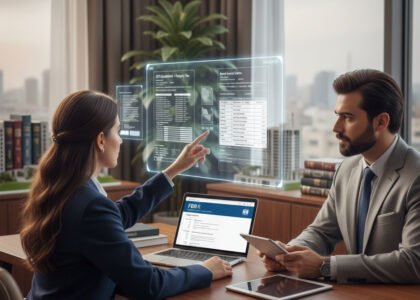The Finance Act 2025 introduces significant changes to the Alternative Dispute Resolution (ADR) framework under Section 134A of the Income Tax Ordinance, 2001. The new amendments focus on State-Owned Enterprises (SOEs) and aim to ensure time-bound dispute resolution by mandating reconstitution of ADR Committees in cases of delay.
The reform strengthens procedural safeguards for SOEs and introduces new sub-sections (11A) and (11B) to supplement sub-section (11).
Text of the Amendment
🔹 Clause (a) – Amendment in Sub-Section (11)
The word “If” in sub-section (11) has been substituted with:
“Subject to sub-section (11A), if…”This makes sub-section (11) applicable only after the mechanism in 11A and 11B is exhausted—specifically for State-Owned Enterprises.
Clause (b) – Insertion of New Sub-Sections
(11A) In case of a State-Owned Enterprise (SOE), if the Committee fails to decide the matter within 60 days, the FBR shall reconstitute the Committee under sub-section (3). The newly formed Committee must decide the dispute under sub-section (5).
(11B) If the reappointed Committee also fails to decide the matter within another 60 days, only then shall sub-section (11) apply.
Legal Analysis and Practical Understanding
Key Objectives of the Amendment
Time-Bound Dispute Resolution for SOEs
The law now imposes a strict 60-day deadline for ADR Committees handling SOE cases.Mandatory Reappointment if Deadline Lapses
FBR must reconstitute the Committee if the first one fails to decide in time—ensuring no indefinite delays.Fallback to Sub-Section (11)
Only if both Committees fail, sub-section (11) kicks in—meaning the matter will be deemed not resolved through ADR.
Before vs After the Amendment
| Before Amendment | After Amendment (2025) |
|---|---|
| No special treatment for SOEs | SOEs get reconstituted ADR Committee if delay occurs |
| One decision cycle only | Two 60-day cycles allowed for SOE cases |
| Sub-section (11) applied directly | Now applies only if both Committees fail |
Example: A state-owned power utility files for ADR. If no decision is made in 60 days, FBR must reappoint a new committee. Only if that committee also fails within 60 days will the matter be treated as unresolved.
Impact and Strategic Insight
Improved Efficiency: The 60-day deadline ensures accountability
SOE-Specific Protection: Ensures state-owned entities are not stuck in limbo
Clear Escalation Path: First Committee → Reappointed Committee → Sub-section (11) fallback
This amendment reflects the government’s intent to streamline the ADR process, particularly for public sector entities.
FAQs – Section 134A Amendments (Finance Act 2025)
What is Section 134A about in the Income Tax Ordinance, 2001?
It provides a legal framework for resolving tax disputes through the Alternative Dispute Resolution (ADR) mechanism.What has changed in Section 134A under the Finance Act 2025?
New sub-sections (11A) and (11B) have been added to establish specific timelines and procedures for disputes involving State-Owned Enterprises (SOEs).Who is affected by these amendments?
Only State-Owned Enterprises (SOEs) are affected by the new sub-sections.What is the significance of sub-section (11A)?
It mandates that if the ADR Committee does not decide the dispute involving an SOE within 60 days, FBR must reconstitute a new Committee.What does sub-section (11B) prescribe?
It allows the application of sub-section (11) only if the second Committee also fails to resolve the dispute within 60 days.What is the role of FBR in these amendments?
FBR is obligated to reappoint a new ADR Committee if the first Committee fails to deliver a decision on time.Does the law allow an extension of the 60-day period?
No, the period is strictly limited to 60 days for each Committee.Is the private sector impacted by these amendments?
No. These provisions apply exclusively to SOEs.What happens after both Committees fail?
The ADR process is deemed to have failed, and the matter is referred back to regular appellate forums under sub-section (11).Can an SOE challenge the failure of the Committee in court?
Yes, but only under constitutional jurisdiction (e.g., writ petition), as ADR itself is an administrative remedy.What constitutes a “State-Owned Enterprise” (SOE)?
An enterprise in which the government holds 50% or more ownership or control, directly or indirectly.How is the ADR Committee initially appointed?
Under sub-section (3) of Section 134A, the FBR appoints a Committee comprising representatives from FBR, taxpayer, and a neutral expert.Does the taxpayer have a say in the reappointed Committee?
Yes, the taxpayer is consulted during the reconstitution process, as per existing ADR rules.Will the reappointed Committee have the same members?
Not necessarily. FBR may nominate different members to ensure neutrality and efficiency.Is this amendment aimed at improving efficiency?
Yes, it seeks to avoid indefinite delays in dispute resolution involving state institutions.Can an SOE refuse to appear before the reappointed Committee?
That would amount to non-cooperation, which may weaken its legal standing in subsequent proceedings.Is the decision of the ADR Committee binding?
If a settlement is reached and accepted by the Board, it becomes binding on both parties.Can ADR be initiated for all types of tax disputes?
No. Certain disputes—such as those involving criminal liability—may be excluded under FBR’s ADR rules.Will this amendment reduce tax litigation for SOEs?
Potentially yes, as it pushes for timely resolution, discouraging prolonged appeals and litigation.When did this amendment become effective?
It took effect from 1st July 2025, the commencement date of the Finance Act 2025.
Disclaimer:
This blog post is intended solely for informational, educational, and general guidance purposes. It does not constitute legal advice, nor does it create a client-consultant relationship. Readers are advised to consult a qualified tax advisor or legal expert for case-specific analysis or official interpretation under the Income Tax Ordinance, 2001 or related tax laws in Pakistan. The author and publisher disclaim any liability for actions taken based on this content.






